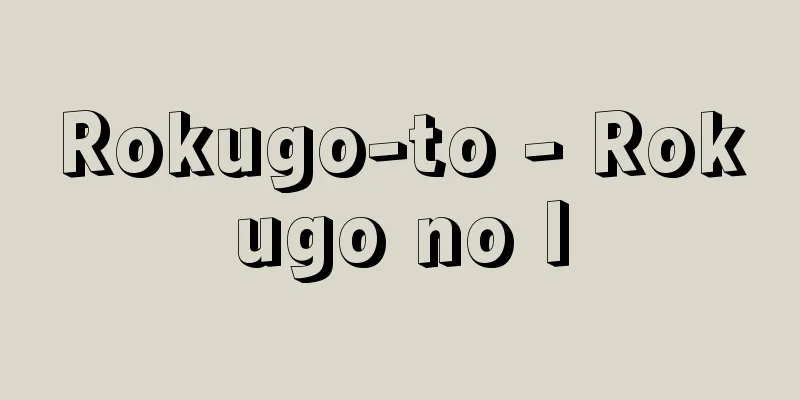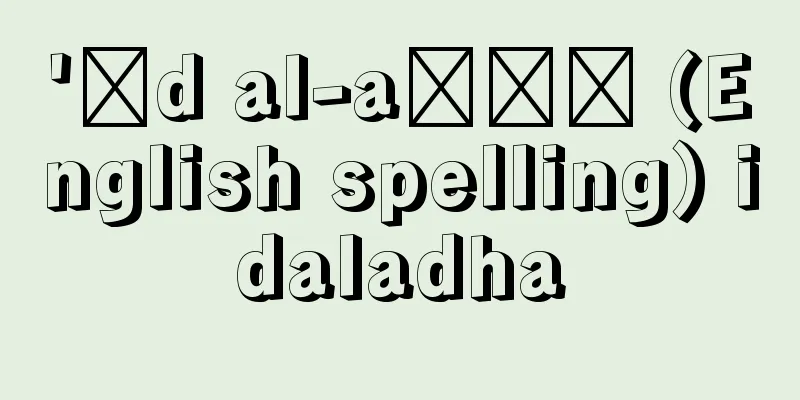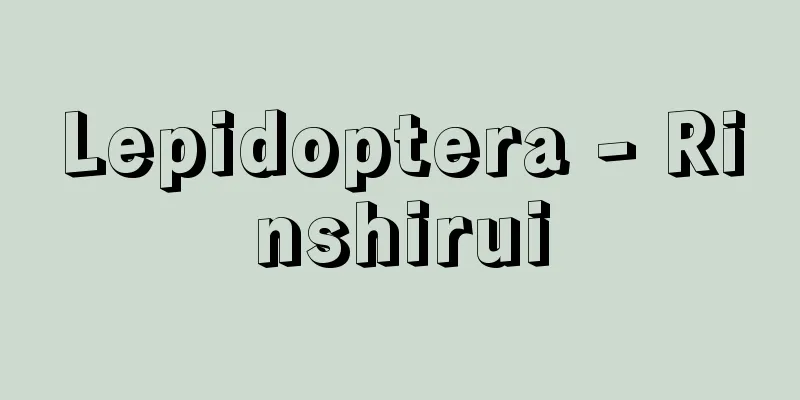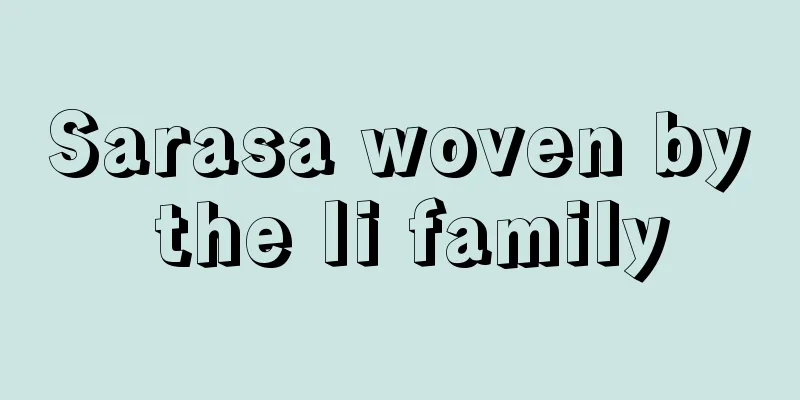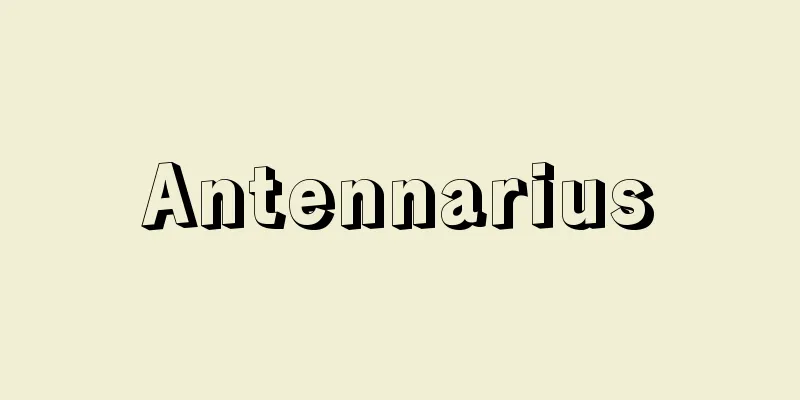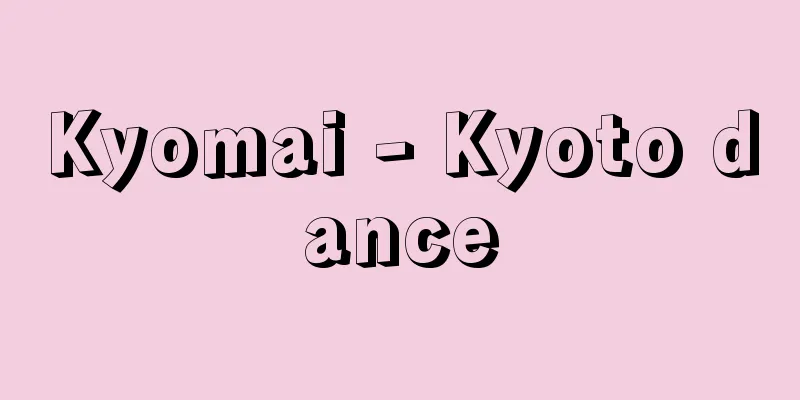Remand - Remand

|
When a higher court finds that an appeal is justified and revokes the original ruling, it refers to sending the case back to the original court for a second hearing. In contrast, when a higher court revokes the original ruling and then takes over the trial in place of the original court, it is called a self-trial. [Takeyoshi Uchida and Tetsuo Kato] Remand in civil casesIn civil litigation, there are cases where the appellate court revokes the first instance judgment and remands the case (Articles 307 and 308 of the Civil Procedure Act), and cases where the appellate court revokes the original judgment and remands the case to the original court (reversal and remand) or transfers the case to another court of equal standing (Article 325, paragraph 1 of the same Act). In the appellate court, when the appellate court revokes the first instance judgment that dismissed the lawsuit as improper for reasons such as lack of interest or capacity, it remands the case for another oral argument and trial (mandatory remand). Even when revoking the judgment for other reasons, it may remand the case if it deems it necessary for oral argument (discretionary remand). In the appellate court, the general rule is to have the case decided by the court itself, and remand is the exception. In contrast, in the appellate court, by its very nature, reversal and remand is limited to certain cases (Article 326 of the same Act), and remand is the general rule. [Takeyoshi Uchida and Tetsuo Kato] Remand in criminal casesIn criminal proceedings, this refers to the case where the appellate court reverses the original judgment and remands the case to the original court or the court of first instance by a judgment. There are cases where the appellate court must reverse the original judgment and remand the case to the original court by a judgment (reversal and remand, Criminal Procedure Law, Article 398), where the court must remand the case to the original court or transfer the case to another court equivalent to the original court by a judgment (Article 400, main text of the same law), and where the appellate court must reverse the original judgment and remand the case to the original court or the court of first instance by a judgment or transfer the case to another court equivalent to these (reversal and transfer) by a judgment (Article 413, main text of the same law). When the appellate court reverses the original judgment, remand is the rule, and self-trial is the exception (Article 400, proviso, Article 413, same law). The court that receives the remand must try the case again. However, the judgment of the higher court is binding on the lower court on that case (Court Law, Article 4). The procedure for appealing a lay judge trial is the same as above, so it is possible for an appellate court to overturn or remand a ruling in which lay judges participated. However, the court of first instance that receives the remand must reappoint new lay judges and hold a lay judge trial. [Ichiro Uchida and Morikazu Taguchi] [Reference] | | | |Source: Shogakukan Encyclopedia Nipponica About Encyclopedia Nipponica Information | Legend |
|
上級裁判所において、上訴が理由あると認めて原判決を取り消す際に、事件を原裁判所に戻して、もう一度審理させることをいう。これに対して、原判決を取り消したうえ、自ら原裁判所にかわって裁判することを自判という。 [内田武吉・加藤哲夫] 民事訴訟における差戻し民事訴訟では、控訴裁判所が第一審判決を取り消して差し戻す場合(民事訴訟法307条、308条)と、上告裁判所が原判決を破棄して原裁判所に差し戻す(破棄差戻し)か、または同等な他の裁判所に移送(破棄移送)する場合(同法325条1項)とがある。控訴審では、訴えの利益や能力の欠缺(けんけつ)などを理由に訴えを不適法として却下した第一審判決を、控訴裁判所が不適法でないとして取り消すときに、もう一度弁論・裁判をさせるために差し戻すのであり(必要的差戻し)、また、その他の理由によって取り消すときでも、弁論の必要があると認めたときは差し戻すことができる(任意的差戻し)。控訴審では、自判が原則で、差戻しは例外である。これに対し上告審では、その性格上、破棄自判するのは一定の場合に限られ(同法326条)、差戻しが原則である。 [内田武吉・加藤哲夫] 刑事訴訟における差戻し刑事訴訟では、上訴裁判所が原判決を破棄して、判決で事件を原裁判所または第一審裁判所に差し戻すことをいう。控訴裁判所が原判決を破棄して、判決で事件を原裁判所に差し戻さなければならない場合(破棄差戻し、刑事訴訟法398条)、判決で事件を原裁判所に差し戻しまたは原裁判所と同等の他の裁判所に移送しなければならない場合(同法400条本文)、上告裁判所が原判決を破棄して、判決で事件を原裁判所もしくは第一審裁判所に差し戻しまたはこれらと同等の他の裁判所に移送(破棄移送)しなければならない場合(同法413条本文)などがある。上訴裁判所が原判決を破棄した場合は、差戻しが原則であり、自判は例外である(同法400条但書、413条但書)。差戻しを受けた裁判所は、改めて事件について審判することになる。ただし、上級審の裁判所の裁判における判断は、その事件について下級審の裁判所を拘束する(裁判所法4条)。なお、裁判員裁判による判決に対する上訴手続も以上と同じであるから、裁判員の参加した判決について控訴裁判所が破棄差戻しをすることもありうる。ただし、差戻しを受けた第一審裁判所は改めて裁判員を選任したうえで裁判員裁判を行うことになる。 [内田一郎・田口守一] [参照項目] | | | |出典 小学館 日本大百科全書(ニッポニカ)日本大百科全書(ニッポニカ)について 情報 | 凡例 |
Recommend
Buceros rhinoceros (English spelling) Buceros rhinoceros
...This is thought to be an adaptation that helps...
Fisheries system - Gyogyoseido
A legal system that regulates the use of fishing g...
theoretical petrology
… Petrology can also be divided into three catego...
Right-wing movement - Right-wing movement
A political and social movement that placed the Em...
Base dissociation index
... K a is the acid dissociation constant, and p ...
Fasting - Danjiki
Fasting means abstaining from all or a specific t...
Taisho Political Crisis
In February 1913 (Taisho 2), the Third Katsura Ta...
Fujiwara no Ietada
Year of death: 24th May 1136 (25th June 1136) Year...
Podiceps grisegena (English name) Podiceps grisegena
…[Hiroshi Hasegawa]. … *Some of the terminology t...
Anal cancer - cancer of the anal canal
Cancer of the anal region. The anus is the lower e...
Wallaroo - Wararu (English spelling) wallaroo
A general term for four species of animals in the...
Gnom (English spelling) [Germany]
A spirit of earth in the 16th century alchemist Pa...
love
…Artistic works such as literature, painting, scu...
Annecy (English spelling)
The capital of the Haute-Savoie department in sout...
Metaphor - Anyu (English spelling)
Along with direct metaphors (simile), metaphors ar...
